Socrates (c. 470, Athens-399, Athens) was a Greek philosopher who rigorously examined his life to yield numerous criticisms of the subliminal stimuli of the then Greek hegemony.
His seminal theories, thoughts, percepts, and exhortations on untapped realms have subsequently influenced the birth of a nascent philosophy, which earned him titles such as Father of Ethics and Philosophy. He has also been mentioned by the most prominent Italian poet Dante Alighieri in his famous 9 circles of hell.
Although we have no document that comes from the pen of Socrates, he is seen conversing with many characters in books written by his disciples, Plato and Xenophon.
Corresponding to his morale was his commitment which he employed to propound numerous philosophical and academic theories that are in practice even today.
So here are my top picks of the most crucial contributions by Socrates:
10. The Happiness Mantra
Content

Socrates infiltrated the predominantly grim society of Greece with his mantra for happiness. The country was churning amidst the devastating Peloponnesian Wars (c. 430-404) that produced citizens drenched in pessimism.
Demonology was the primary basis of the ancient time where people conceived happiness as some elusive phenomenon, which was bestowed rarely by gods to whom they favored.
It was Socrates who introduced the concept of harnessing happiness by ourselves. He posited that through rationality, one could achieve tranquillity to the innermost corner of our soul, undisturbed by external factors. Happiness was directly proportional to knowledge.
The idea of achieving happiness was considered hubris (similar to arrogance) in Greece. The topics of discussion are restricted to metaphysics, such as what the components of the world are.
However, shattering the conventions of the established regime, Socrates was rather interrogative of matters of ethics and society, such as what true happiness is.
Through deep contemplation, Socrates eventually stated that focusing on the soul rather than the body was the key to happiness. Only by leading a moral and wise life could one be transported to the abode of inner bliss. And we can bet that most of the enlightened gurus concur.
9. The Purpose of Life

Socrates opined that the purpose of life is to give life meaning. According to him, we justified living by attributing to arête, the Greek word for virtuous morale.
Our purpose in life should be to attain our full potential through knowledge of the Self. When asked about the goal of his life, he quoted that he wanted to become better each day until he died.
Perhaps one of the most loved quotes is that he knows that he knows nothing. Although this contradicts his statement of attaining self-knowledge, he propounded various ethical theories paradoxically.
One of his ideas was that knowledge is a virtue and that people perpetrate wrong activities because of the persistence of ignorance.
Ignorance drives a person to commit hurtful things to his fellowmen. Whoever is hurt must not indulge in retaliation to avenge the other but whether grave adversities, if one must, to protect his soul from tainting.
He paved his virtuous life on the grounds of high morality and to him, this was the only way.
This idea of soul-searching and self-knowledge reverberates the core of every spiritual quest we know. All thanks to this awakened Zen master.
8. Moral Reasoning
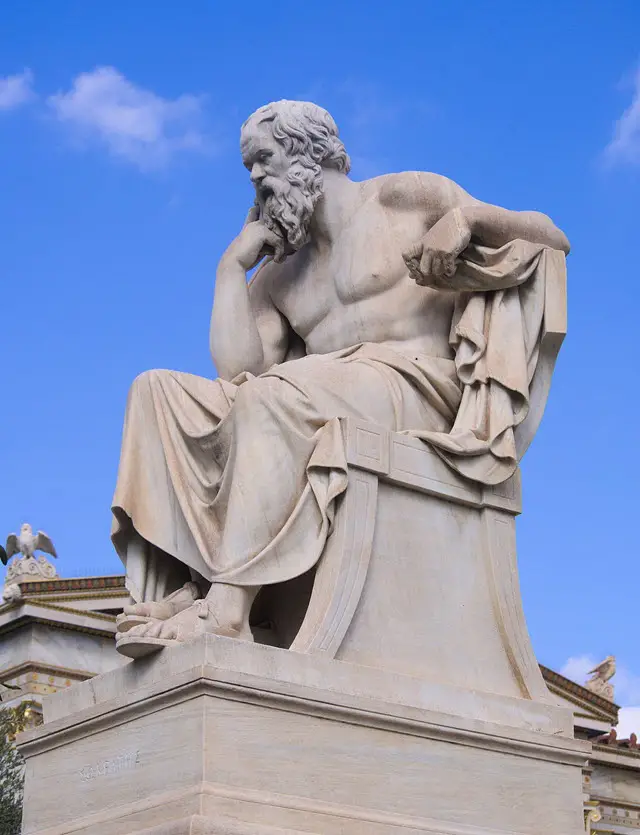
Ethics is our conscience; the yardstick by which we measure the good and the bad. For Socrates, it was the way of life.
As it is clear that before Socrates, only metaphysical questions hounded the premise of ancient Athens, it was he who persisted that enquiring human realms should be of paramount importance.
According to him, philosophy should grope the relatively vague aspects of human conduct and morality. He was an embodiment of righteousness and based his reasonings on a high plane of ethics.
Chapter One of Exploring Ethics by Steven M. Cahn analyses his justification of his stance on escaping death.
He accepted the verdict of the jury for his execution and struggled to conjure up philosophical exhortations up until the last moments. He refrained from fleeing, making obvious his acknowledgment and acceptance of the state laws and his fate. It clarifies his moral compliance with the decision of the authority.
Besides, the state or the society is our guardian and as dutiful children, we need to be obedient to the laws.
7. The System of Governance
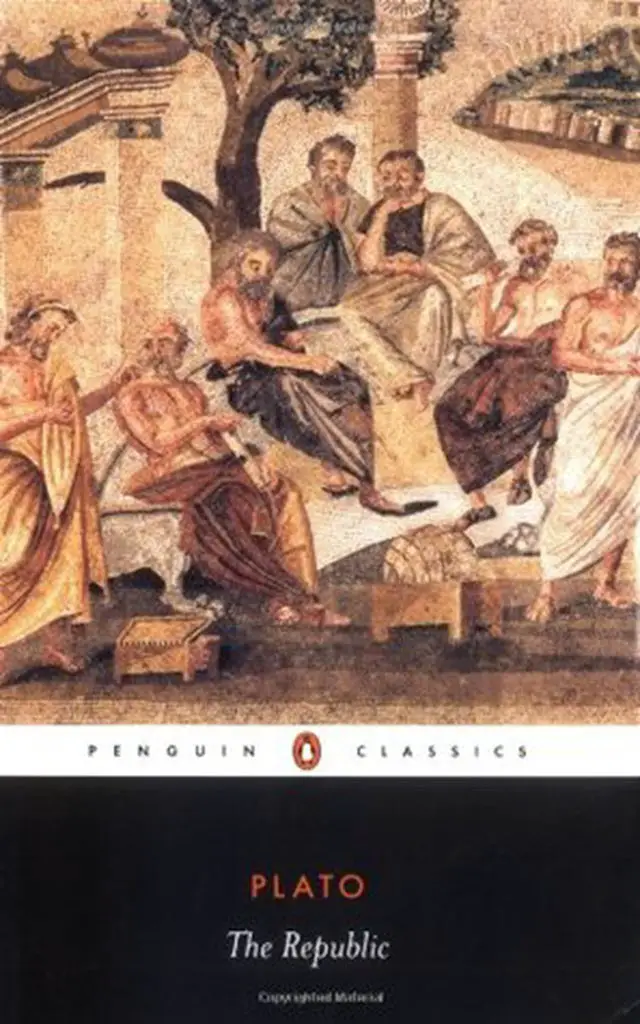
When we think of the democracy of Ancient Athens or of any democratic nation for that matter, we put it on a high pedestal for its provision of voting rights. It allows people from the lowest bar of the pyramid of social hierarchy to elect their representatives. However, Socrates didn’t prefer democracy.
In Book Six of The Republic by Plato, his conversation with Adeimantus illustrates the loophole of a democratic society. He asked that if you were traveling to the sea by ship who would you choose to be the captain, just anybody or a deft sailor? Aedimantus chose the latter.
This allegory aptly suggests the underlying problem of democracy when applied to the process of voting: the learned ones should decide who their leader should be. Socrates argued that voting in an election is a great responsibility upon which the future of a nation rests. Hence, an ordinary judgment made by an ordinary citizen would jeopardize the gravity of the ballot.
He insisted that votes must be cast rationally and meticulously to avoid a contemptuous system of tyranny.
6. Reformed Education System
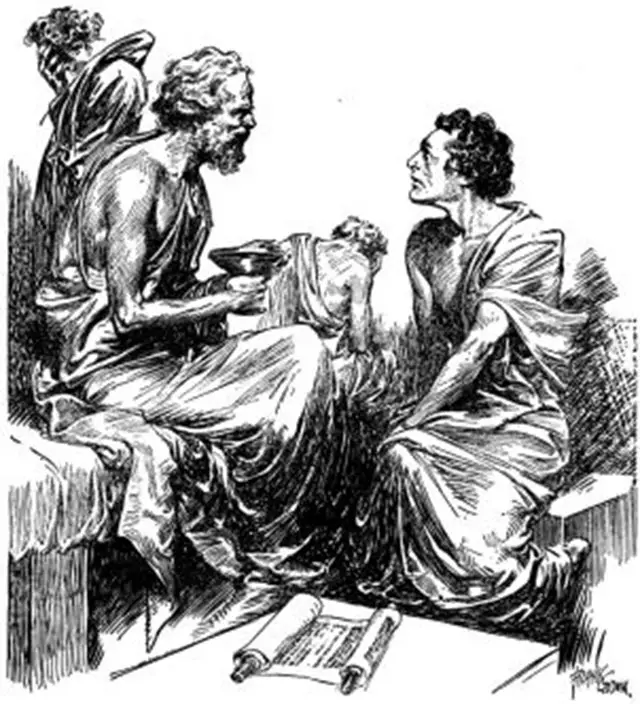
Back then, the education system was austere in its architecture. Girls, boys, military groups all had to partake in schooling as per their roles in Athens.
For instance, girls stayed at home with their mothers. For them, homeschooling meant honing their skills to perform domestic chores in the house.
Men were taught formally, instilling in them the art of reading, writing, and physical exercises. It was purportedly for participation in politics and to send them off to the military respectively.
Socrates led the movement to standardize this system by advocating the same form of education for both genders. He also supported educating the guardians of the city, particularly the intellectual and military personnel.
Similarly, he endeavored to split the education system into Music, for nurturing the soul, and Acrobatics for physical development. He discouraged active learning for children and suggested they partake in play.
These changes were made possible by a few other Sophists but Socrates was undeniably the primary influencer. Thus, sowing the seeds of a reformed learning system in Athens, he brought about the practice of higher education.
5. Socrates and Learning
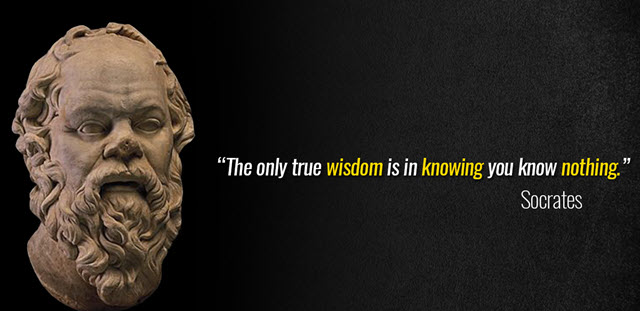
Although Socrates riddled fellow listeners with his paradoxical statement that the only thing he knows is that he knows nothing, he shed ample knowledge for learning.
Learning for Socrates was to understand our ignorance and subsequently transform it by seeking the truth of various matters. He insists on questioning and interpreting the wise men and their knowledge.
As he quoted to employ your time in improving yourself by their writing, so did he devise heuristic measures such as interpretation of statements and examination of words and lives of the wise and reputed to gain insight.
He valued universal and moral education to merely the knowledge of craftsmanship. He cited that there were two kinds of knowledge: the major and the minor. It is the purported theory of value as given by Socrates.
Most of us are familiar with minor knowledge, which is merely information that enables a person to do something, but it is only beneficial to himself. It allows a person to be an expert in doing a small task, restricting to specifications and limited benefactors. He contended that the ambit of the latter is much broader.
It benefits all and seeks to answer how to live the best life. It pertains to reasoning and defining concepts to grasp the truth, wisdom and unparalleled goodness.
4. The Immortality of Soul
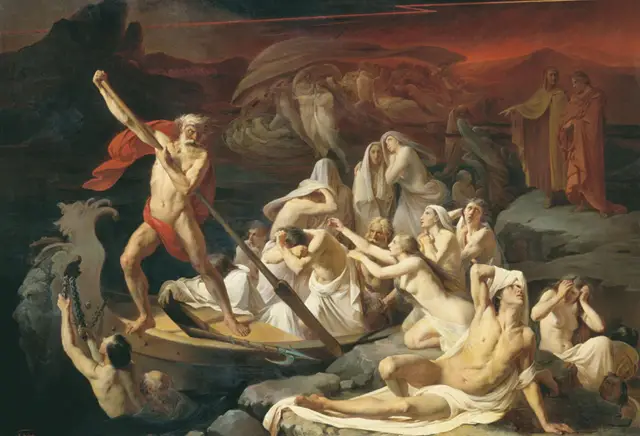
What Plato covers in his books, most significantly in Phaedo, is that Socrates believed that the soul was deathless.
The soul is the central component that is encapsulated by a basic framework of muscles and bones to make a human. The actual being is the inner-self, which is divine, immortal, and dwelling with the gods.
He firmly believed that the body was a prisoner of the soul that incapacitated it to merge with the divine. It was because people saw through these prison bars and wallowed in ignorance and never found true happiness.
Our eyes and vision are fraught with deceptions, while only the soul is pure and objective in its visage. He asserted that it retains the truths even after disembodiment.
His arguments on the imperishable and often, intelligent nature of the soul are, needless to say, not adduced with any further evidence. In fact, in contradiction (which was his forté), he disavowed his knowledge about anything, even death.
He said that he stood unwavering before the guillotine (not literally) for the same reason that he did not know what followed after death.
Nonetheless, even after his death, Socrates became an immortal symbol of philosophy.
3. Human Knowledge
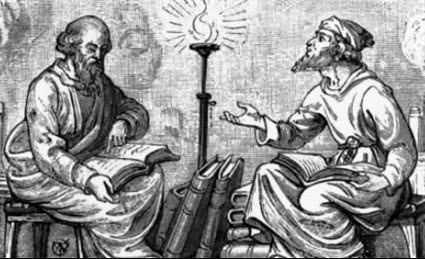
In the dialogue, Meno, Plato has crystallized a meaningful discussion that draws out many conclusions.
It reconstructs his conversations with an unschooled servant boy, also called Meno’s slave. As we follow the dialogues, it dawns on us that Socrates had presented the kid with a geometrical problem, wherein the kid is required to expand the initial size of the square.
Through these conversations, Socrates concluded supraliminal theories. He stated that men possess infinitesimal potential within themselves. We already have the answers and opinions of all that there is to question.
Therefore, he reminded us that everything we ought to know is within the ambit of our knowledge; it is merely a matter of recollection of the vast wisdom we have.
Also, recollection resides at the source of knowledge. It is through constant introspection and bouts of self-reflection that we can tap into our inner wisdom.
The slave was able to correctly redraw the square using his intellect that hitherto was unknown to him. The idea was to question oneself multiple times and dive deep in contemplation to recollect the stored knowledge.
Deducing, Socrates contended that human knowledge was inherent in all beings and our only task was to turn inwards and look within for answers. He highlighted this philosophical belief by proving a mathematical predicament.
2. Socratic Irony
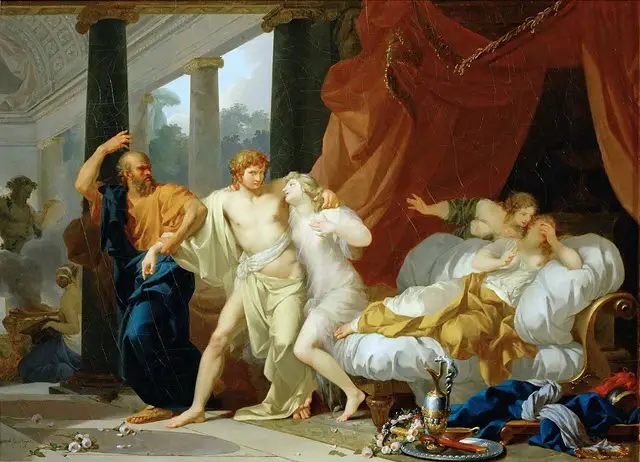
Socratic Irony is a part of the Socratic Method of argument where one assumes ignorance to precipitate the ignorance of the other person.
One of the crucial points is to play dumb and act like you have no clue what it means and bombard your counterpart with questions.
It is one of the stratagems of catching a lie or making someone confess something they would most generally repudiate.
This method is widely recognized today, especially in the areas of law. Socratic Method and Socratic Irony are taught compulsorily in law schools. A courtroom drama is the best place for its practical application.
1. Socratic or Elenctic Method
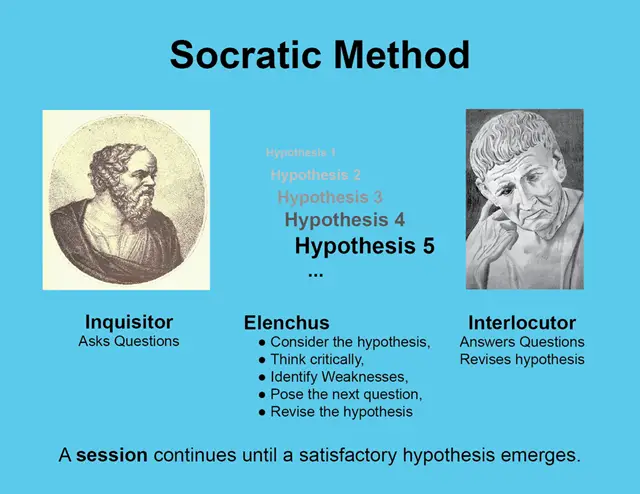
Socratic method in modern usage is a refined rendition of the practice involving a question and answer series, used rigorously by Socrates. It is a method widely taught in every law school all over the world, especially during cross-examination.
The method dates back to ancient Athenian times and it is conferred to Socrates, through careful reconstruction of his conversations. It is said that Socrates would engage in active questioning to the interlocutor who assumed he possessed superior intellect.
He put on an ignorant face and questioned them incessantly until finally, he proved the inadequacy of the interlocutor. It was a rather devious way of detecting deception.
After the interlocutor’s initial proposal had been refuted, he attempted to advance another motion. The cycle continued revealing new challenges to the interlocutor and obliterating his answers from the previous round. Thus, tricking him and disproving his wisdom.
By the end of it, their roles were reversed where Socrates was the wise one while the interlocutor appeared clueless.
Conclusion
Many people view Socrates as heroic because of his insistence that discussion and debate are always preferable to bloodshed of the battlefield as a method of resolving differences.
Whether a hero or a heretic, he devoted his entire life, literally until his last breath, to philosophical exhortations and encouraged all denizens to follow suit.
It was the same reason he was held culpable. Living true to his words, he resolutely prepared for his execution by drinking hemlock and died in 399 B.C.
